Shoulder
Normal Anatomy of the Shoulder Joint
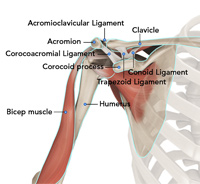
The shoulder is the most flexible joint in the body making it the most susceptible to instability and injury. It is a ‘ball-and-socket’ joint. A ‘ball’ at the top of the upper arm bone, humerus, fits neatly into a ‘socket’, called the glenoid, which is part of the shoulder blade, scapula.
Find out more about Normal Anatomy of the Shoulder Joint, click on below tabs.
Rotator Cuff Tear
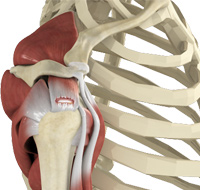
Rotator cuff is the group of tendons in the shoulder joint providing support and enabling wider range of motion. Major injury to these tendons may result in tear of these tendons and the condition is called as rotator cuff tear. It is one of the most common causes of shoulder pain in middle aged adults and older individuals.
Find out more about Rotator Cuff Tear, click on below tabs.
Shoulder Instability
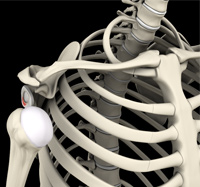
Shoulder instability is a chronic condition that causes frequent dislocations of the shoulder joint. A dislocation occurs when the end of the humerus (the ball portion) partially or completely dislocates from the glenoid (the socket portion) of the shoulder. A partial dislocation is referred as subluxation, whereas the complete separation is referred as dislocation.
Find out more about Shoulder Instability, click on below tabs.
Frozen Shoulder

Frozen shoulder, also called adhesive capsulitis is a condition characterized by pain and loss of motion in shoulder joint. It is more common in older adults aged between 40 and 60 years and is more common in women than men.
Find out more about Frozen Shoulder, click on below tabs.
Shoulder Arthritis
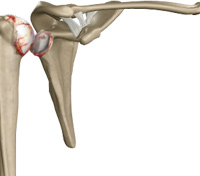
The term arthritis literally means inflammation of a joint, but is generally used to describe any condition in which there is damage to the cartilage. Damage of the cartilage in the shoulder joint causes shoulder arthritis.
Find out more about Shoulder Arthritis, click on below tabs.
Calcific Tendinitis
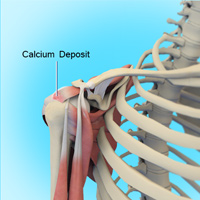
Calcific cuff tendinopathy is a problem with the shoulder’s tendons and muscles. This condition occurs due to the formation of calcium deposits in the tendons (tissue which attaches muscle to bone) of the rotator cuff (group of muscles and tendons stabilising the shoulder).
Find out more about Calcific Tendinitis, click on below tabs.
AC Joint Dislocation
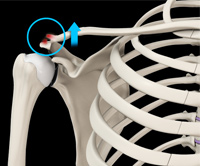
Acromioclavicular joint (AC joint) dislocation or shoulder separation is one of the most common injuries of the upper arm. It involves separation of the AC joint and injury to the ligaments that support the joint. The AC joint forms where the clavicle (collarbone) meets the shoulder blade (acromion).
Find out more about AC Joint Dislocation, click on below tabs.
Shoulder Fracture
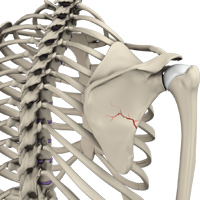
A fracture is a break in the bone that commonly occurs as a result of injury, such as a fall or a direct blow to the shoulder. Shoulder joint is the most flexible joint of the body. It allows different motions of the hands making it possible for us to do a vast array of different activities.
Find out more about Shoulder Fracture, click on below tabs.
Shoulder Bursitis
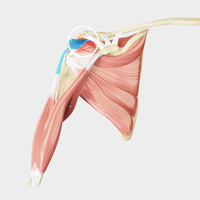
Coming soon
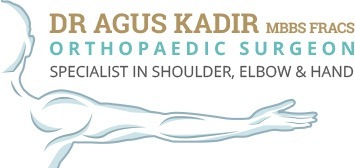
 Menu
Menu






